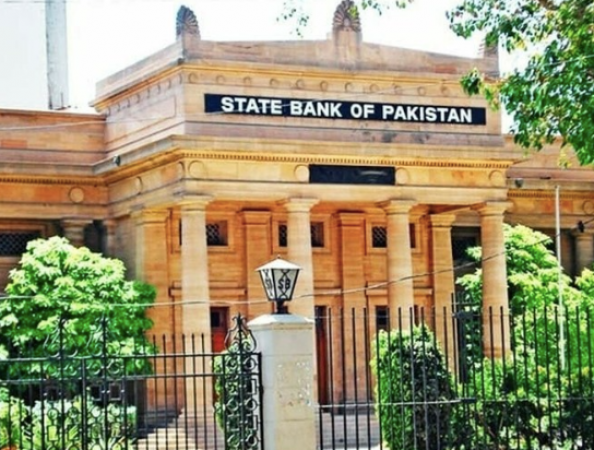
Karachi: Finance Minister Ishaq Dar reported on Tuesday that Saudi Arabia had deposited $2 billion in Pakistan's central bank, just one day before the IMF's board is anticipated to approve the provision of $3 billion in stand-by bailout funds.
In order to release a $1.1 billion tranche from an Extended Fund Facility programme that Pakistan joined in 2019, the IMF required cash-strapped Pakistan to obtain financing guarantees from allies and multilateral donors in March. Later, Saudi Arabia and the UAE pledged $2 billion and $1 billion, respectively, and China extended a $2 billion loan.
In addition to the funding from Saudi Arabia, the IMF agreement will open up additional bilateral and multilateral financing. Dar has stated that he anticipates Pakistan's foreign exchange reserves to reach $15 billion by the end of the month.
Also Read: Adarsh Kumar to Join We Win Limited as MD & CEO, Spearheading Growth Initiatives
Dar said in a video message that "Saudi Arabia has placed that deposit with the Pakistan State Bank, the amount has come into the State Bank's account and this will be a direct addition to Pakistan's foreign exchange reserves."
Dar predicted that after the Saudi deposit, Pakistan's foreign exchange reserves, which closed at $9.6–9.7 billion last Friday, would rise to $11.6–11.7 billion.
Dar stated, "I would like to thank the leadership of Saudi Arabia, particularly King Salman and Crown Prince His Royal Highness Mohammed bin Salman and their leadership for standing with Pakistan at every moment," adding, "They fulfil their role as a true brother of Pakistan."
Financial experts in Pakistan have also acknowledged the significance of the deposit.
Also Read: Google's Head of AR Software, Mark Lucovsky, Resigns Amidst Leadership Changes
CEO of Arif Habib Limited Shahid Ali Habib told Arab News that it was "a very positive development."
"It reflects the great confidence in Pakistan shown by the Saudi leadership that they have deposited the funds even before the formal approval of the $3 billion programme by the IMF board," he continued.
In contrast to the $15 billion in public debt maturities, including $1 billion in bonds and $3.6 billion to multilateral creditors, Pakistan anticipates $25 billion in gross external financing in fiscal year 24 (which runs from July 1 to June 30 2024).
The government's funding goal calls for market issuance of $1.5 billion and commercial bank borrowing of $4.5 billion, both of which could be difficult to achieve. However, some of the loans that were not rolled over in FY23 may now be repaid, according to credit rating agency Fitch, which on Monday raised the country's rating to "CCC."
The Saudi funding will, as anticipated, help Pakistan's currency reserves, which have fallen to $4.5 billion, not even enough to pay for a month's worth of imports. Pakistan's average monthly import bill is $5 billion, according to the import trend.
According to Zafar Sultan Paracha, general secretary of the Exchange companies Association of Pakistan, the Saudi funding is like a lifeline for Pakistan in the current situation.
This will strengthen our position in terms of reserves, ease pressure on the Pakistani rupee, and open the door for additional inflows from other sources.
After the finance minister's announcement, the currency and stock markets both experienced gains as a result of the Saudi deposit.
In the interbank market, the rupee increased by 2.55 rupees ($0.0082), and in the free market, it increased by 1.
Also Read: The Role of Ethical Leadership in Building Trust and Organizational Success
Currency dealers claimed they did not expect "major fluctuations" in the value of the rupee despite the funding flow and the IMF programme.
The trade deficit remained stubbornly high at 43% in the first 11 months of the current fiscal year, and the funding gap was still very large, according to Paracha.
Following Dar's announcement, the KSE100 Index for the first time since April 2022 crossed the 45,000 mark.
With KSE100 index companies offering 12.5 percent returns, the Pakistan stock market has become the best-performing market following the IMF SBA, according to Habib.